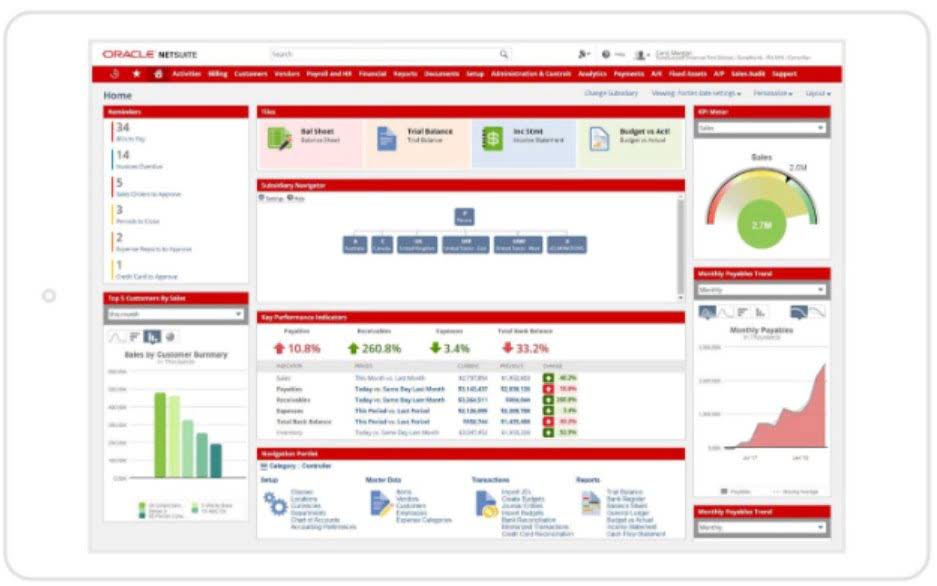- سبد خرید شما خالی است
- به خرید ادامه دهید
FRS 102 and FRS 105: New revenue recognition rules

Organizations should maintain clear evidence of meeting requirements before recognizing any related grant income. This helps avoid potential clawbacks or repayments if compliance is questioned. A capital grant is a grant given to purchase long-term assets like property, equipment, or software. The accounting treatment depends on whether the grant is a capital grant or a revenue grant. To qualify as income, the grant must be used for the purpose for which it was awarded.
Why Private Equity Is Rushing To Buy Up Accounting Firms
The transaction price allocated to the technical support is £24,000 (£30,000 x 80%). The principal activity of an IT services provider is to provide support and repair services via the internet and onsite, if required. It has entered into a verbal contract with one of its customers to scan its server for viruses and clean up redundant files. The price to perform this work was agreed with a sales consultant by telephone.
Setting Up a Financial Tracking System
Set clear and consistent expectations with your team when it comes to accounting for grant funds. This means that everyone should understand the procedures, deadlines, and any other expectations related to accounting for grants. Establishing clear roles and communication protocols can help ensure that all team members are in alignment when it comes to grant accounting. One concern is that auditor independence won’t be sufficiently protected by the alternative structures those taking PE money have set up. But even more concerning—particularly to the partners doing audits—is that splitting off the more lucrative tax and advisory services could starve the auditors of resources, she says. If some, or all, of a government grant becomes repayable (e.g. due to non-fulfillment of the grant conditions), then the repayment is accounted for prospectively as a change in accounting estimate.

Disclosure of government grants
- In general, unless the not-for-profit has variance power, FASB rules hold that when a donor specifies a third-party beneficiary, the organization that receives the donation as a passthrough entity should not recognize the contribution.
- Grants can have a profound impact on your nonprofit’s financial statements if most of your revenue comes from grants.
- Ordinarily, this would just be an intention, not an unconditional promise, and the revenue would not be recorded.
- Proper grant accounting is more than just about complying with funder requirements.
- It is important for grant recipients to follow deadlines and requirements when accounting for grants in order to avoid penalties or delays.
- The main differences come down to IFRS having more prescriptive guidance based on the nature and conditions of grants, while US GAAP offers more flexibility in timing and approach for business entities.
Once the grant recognition criteria are met and the grant is allocated between the R&D components, it is recognized as follows. If a government grant meets the recognition criteria, IAS 20 generally allows either gross or net presentation on the balance sheet and/or income statement. For example, a company may elect gross presentation on its balance sheet and net presentation on its income statement.
What are the differences between IFRS and US GAAP in accounting for government grants?
Understanding the accounting treatment for these grants is important for proper financial reporting. To comply with nonprofit accounting compliance requirements, government grants must be matched with related expenses. This means that grant income is deferred until the recipient incurs eligible what is grant accounting expenditure. Grant income may not meet the definition of a liability, depending on the circumstances. If a grant is determined to be unconditional, revenue is recognized when the grant is received. The final step in the evaluation process is to determine whether or not donor-restrictions exist.

Government grants – solution:
This article clearly explains the key principles behind grant accounting under both US GAAP and IFRS standards. Capital grants are funds that are provided to assist in the acquisition, construction, renovation, repair of capital assets, or fixed assets. Capital grant revenue can be recorded as deferred revenue on the Statement of Financial position and revenue can be recognized as the capital assets are depreciated. As a nonprofit, there are no tax consequences to receiving a grant, if it is provided to further its mission. A government grant is recognized only when there are reasonable guarantees that the nonprofit will comply with the conditions attached to the grant, and the grant will be received. The grant is recognized as income over the period necessary to match to the related costs, for which the grant is intended.
- Government grants land to Company on the condition that Company constructs and operates a manufacturing facility on the land.
- This is because the customer simultaneously receives and consumes the benefit of the payroll service.
- Good accounting also assists with the management of cash flow and ensures that startups comply with financial regulations and tax laws—helping them avoid penalties and legal issues.
- Step one in the ASU flowchart asks organizations to distinguish between reciprocal (exchange) and nonreciprocal (contribution) transactions.
- This immediately recognizes the full grant amount as income in the period received, as long as all attached conditions have been satisfied.
- “But other donors say, ‘I want this to go directly to XYZ charity,’ ” Kattell said.
- The complexities of grant accounting demand more than just a basic accounting setup.
Government grants
- We provide timely, accurate, and reliable services with high fidelity to your organization’s mission and values.
- Grants should be categorized according to their purpose and documented accordingly.
- Once all direct costs have been identified and categorized, it’s time to allocate overhead and indirect costs.
- It should also allow for easy extraction of these details when preparing grant-specific financial reports or undergoing an audit.
